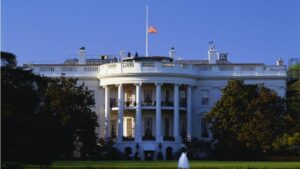The National Science Foundation (NSF) said it is making $2.4 million of funding awards to several U.S.-based universities that are doing work on six international research projects aimed at leveraging artificial intelligence (AI) tech for agricultural applications.
State and local governments are moving quickly from artificial intelligence (AI) experimentation to production use, and that shift is forcing a new kind of security posture – one that can keep up with constantly changing models, data pipelines, and cloud services.
The University of Kansas and the University of Central Florida have secured a $3.5 million federal grant to expand a national center helping educators navigate rapidly evolving technologies, including artificial intelligence (AI).
Vanderbilt University expanded campuswide access to generative artificial intelligence (AI) tools, formalizing a multi-tool approach to powering advancements in research, education, and operations, according to a university announcement.
Virginia Union University Enterprises (VUUE) launched a joint venture with technology consulting firm MTX Group to design and deliver artificial intelligence (AI)-driven education technology aimed at improving student outcomes and career readiness, the university announced.
Carnegie Mellon University (CMU) has partnered with the Gates Foundation to launch a new artificial intelligence (AI)-enabled learning collaborative, Learnvia, to support student educational experiences.
Nearly 60% of K-12 students are using artificial intelligence (AI) in schoolwork, a new statewide poll from EdTrust in Massachusetts and The MassINC Polling Group found – but parents remain divided over its role in classrooms.
Microsoft has launched a new artificial intelligence (AI)-powered program for K-12 educators to help them prepare students for an AI-driven future.
Clemson University launched a campus-wide artificial intelligence (AI) initiative aimed at coordinating teaching, research, and public engagement around the responsible use of AI, the university announced.
The White House science and technology chief offered few details about what Congress can expect from the Trump administration’s national artificial intelligence (AI) framework, while also facing scrutiny from lawmakers over the administration’s use of a controversial AI tool.











